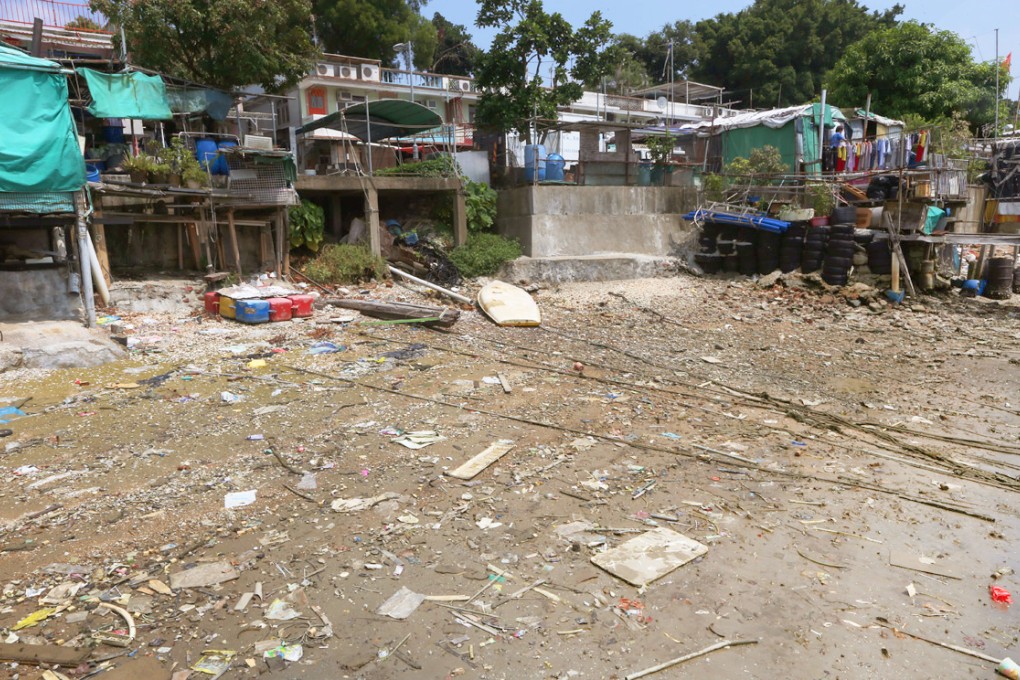Coast effective? The mammoth task of ridding Hong Kong's beaches of plastic rubbish
Ridding Hong Kong’s beaches of plastic waste is a gargantuan task, requiring cooperation from the government, shops and restaurants – and every single one of us. Angie Bucu heads to the frontline of the battle against marine litter

It’s a hot Sunday morning and on Sam Pak Wan beach, near Discovery Bay, the water looks clean and inviting. The vegetation and purple flowers that fringe the Lantau beach are a delight but the high tide line tells you why an early crowd has gathered here.
Half a dozen children under the age of 10 hover, waiting for instructions.
“OK, kids, the competition this morning is to see who can collect the most plastic bottle tops. Off you go,” says Tracey Read, founder of non-profit organisation Plastic Free Seas and coordinator of this beach clean-up. The parents are already collecting a bounty of plastic rubbish.
The enthusiasm of the youngsters is encouraging, but it is a shame that rubbish is what many children have to look forward to when they visit the beach – in Hong Kong and elsewhere.
Beach clean-ups are particularly popular at this time of year, with the International Coastal Cleanup, a global event led by Ocean Conservancy and organised in Hong Kong by the Green Council, which takes place until November 8, and Ecovision Asia’s Hong Kong Cleanup, running until November 1. Since the summer of 2012, when 150 tonnes of plastic pellets spilled overboard from cargo ship Yong Xin Jie 1 during a typhoon, participation rates in such events have increased.
But the public isn’t having to shoulder all of the responsibility; in the wake of the spill, the authorities established the Clean Shorelines initiative, which involves eight government departments. Chaired by director of the Environmental Protection Department (EPD) Anissa Wong Seanyee, its mandate is to clean up and prevent the creation of marine rubbish, and educate the public about the benefits of unsullied shorelines.
To determine the source of marine rubbish in Hong Kong’s waters and how it is being treated, five rounds of surveys were carried out by consultancy Mott MacDonald over a 12-month period. The EPD’s Water Policy and Science Group says the consultancy’s report and recommendations should be complete by the end of the year. There is, however, no indication of when that information will be made public.